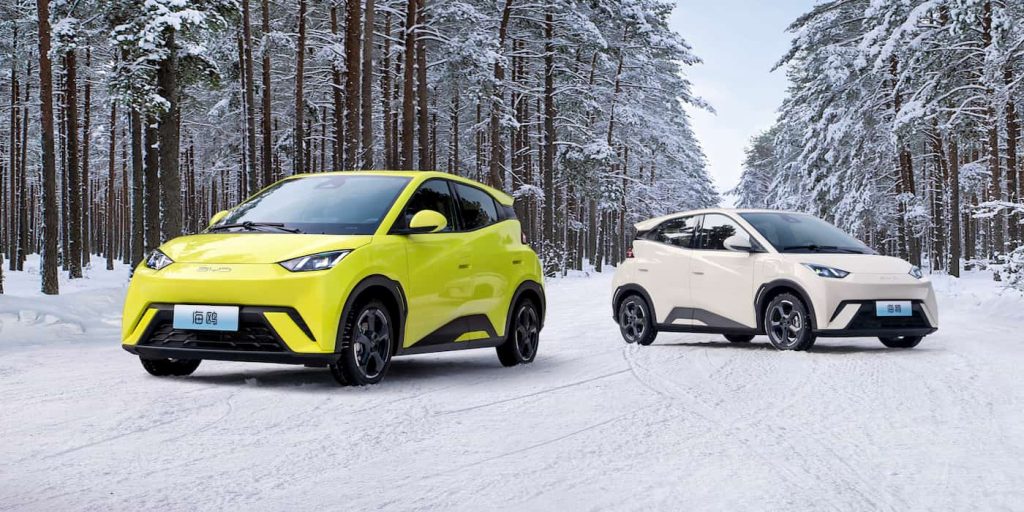Small, well-built Chinese EV called the Seagull poses a big threat to the US auto industry

The advent of the Seagull, a diminutive yet remarkably affordable electric vehicle (EV) manufactured by Chinese automaker BYD, has sent shockwaves through the American automotive landscape and political arena alike.
Priced at approximately $12,000 in its domestic market, the Seagull offers a compelling combination of performance and craftsmanship that rivals EVs produced in the United States, despite costing a fraction of the price. Even a shorter-range variant is available for under $10,000. However, tariffs on imported Chinese vehicles currently deter the Seagull’s entry into the American market, potentially inflating its price beyond $12,000 if imported.
Nonetheless, the rapid emergence of competitively priced EVs from China poses a disruptive force that could reverberate throughout the global auto industry, akin to the transformative impact of Japanese automakers during the oil crises of the 1970s. With BYD spearheading this movement, American automakers face an impending challenge to their established dominance.
Acknowledging the threat posed by Chinese EVs, U.S. policymakers and manufacturers are already on high alert. The Biden administration is poised to announce tariffs of up to 100% on Chinese EV imports, citing concerns over job security and national defense. Organizations like the Alliance for American Manufacturing warn of the potentially catastrophic consequences for the U.S. auto sector, emphasizing the competitive edge enjoyed by government-subsidized Chinese EVs.
Chinese EV manufacturers, propelled by their domestic success, are now eyeing global expansion. While EVs in Western markets often cater to affluent demographics, Chinese brands are democratizing EV ownership by offering affordable options targeted at mass consumers. This strategic approach aligns with international efforts to transition away from fossil fuel-powered vehicles in combating climate change.
The automotive landscape is rapidly evolving, with traditional industry paradigms being challenged. The Seagull’s minimalist yet high-quality design underscores the imperative for American automakers to adapt. With BYD leveraging vertical integration and cost-efficient manufacturing techniques, the onus is on Detroit to embrace innovation and shed outdated practices to remain competitive in the evolving automotive landscape.
As the global auto industry braces for seismic shifts, the success of Chinese EVs like the Seagull underscores the imperative for adaptation and innovation within traditional automotive hubs. The coming years will undoubtedly witness a renaissance in automotive design and engineering as manufacturers strive to meet the evolving demands of an increasingly electrified future.

